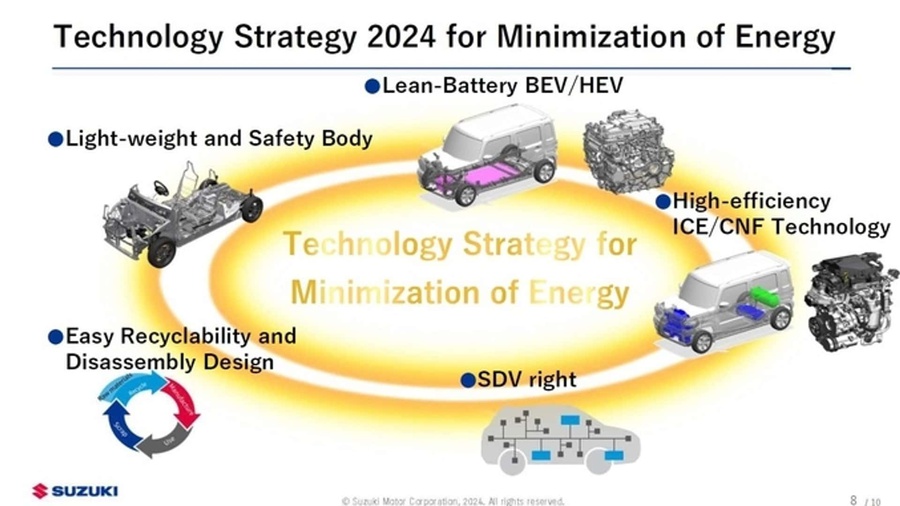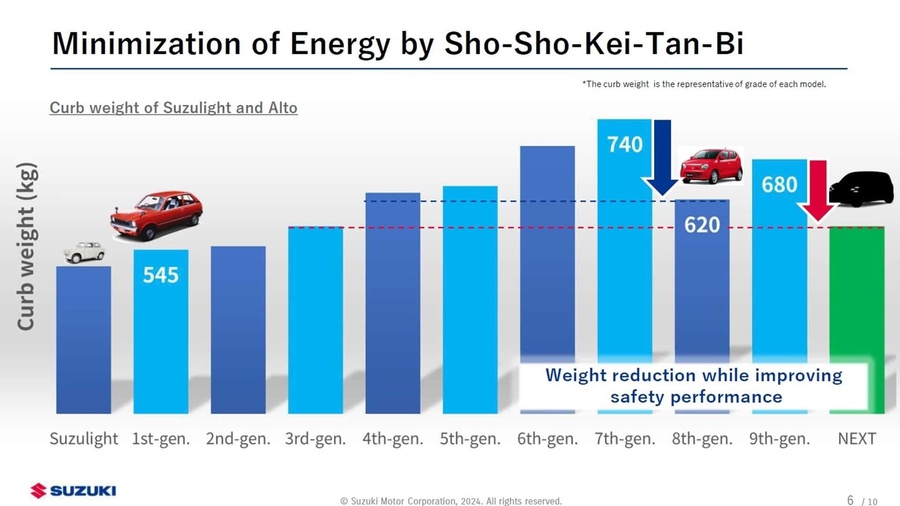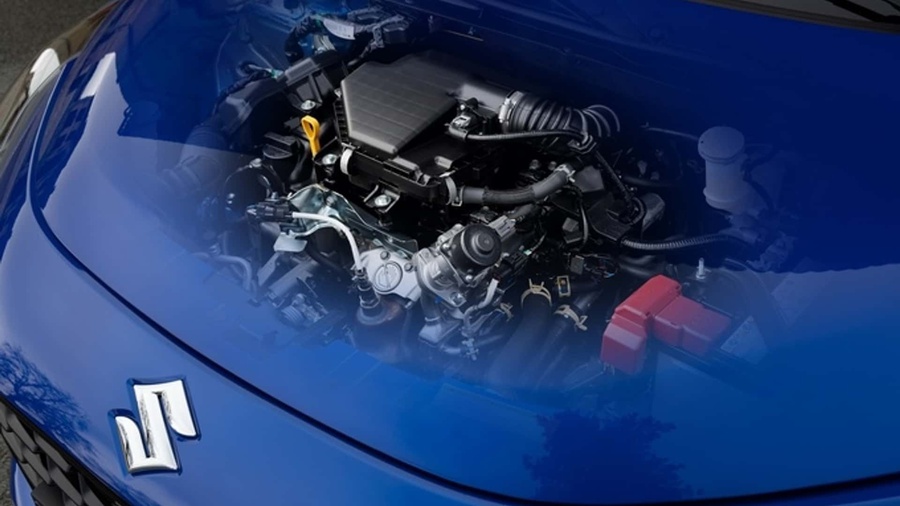The Japanese car manufacturer will continue to develop smaller, more efficient vehicles, while many other manufacturers are withdrawing from this segment.
The company's plan is based on the principle of "Sho-Sho-Kei-Tan-Bi", which means "smaller, less, lighter, shorter, cleaner". Suzuki wants to reduce vehicle weight, increase energy efficiency and improve the sustainability of its entire product range.
Currently, Suzuki vehicles are 200-300kg lighter than the average in Europe, India and Japan. The company plans to save a further 100kg per vehicle in the coming years. This weight reduction will result in energy savings of 20% in production and 6% in operation.
Suzuki's focus on small cars comes at a time when other manufacturers are withdrawing from this segment. Ford, for example, has discontinued its popular Fiesta model, citing high development costs and low profit margins. Suzuki, however, sees an opportunity in this market niche.
The car manufacturer's strategy covers several key areas. In terms of powertrains, Suzuki will focus on hybrid or battery-electric powertrains and develop small, efficient drive units and lightweight batteries. The company's HEARTECT platform will play a crucial role in significantly reducing weight while maintaining high body rigidity.
Suzuki has also developed a new engine, the Z12E, which features optimised combustion and a maximum thermal efficiency of 40%. This engine will debut in the new Suzuki Swift and will be used in other models worldwide.
The company is also focussing on the concept of software-defined vehicles (SDV). Suzuki's approach includes a cost-effective system that minimises energy consumption and enables both wired and over-the-air (OTA) updates.
To reduce development costs, Suzuki plans to increase the use of cross-model components. The company is also emphasising easy-to-disassemble and recyclable products to support the circular economy.
These initiatives are expected to bring numerous benefits, including lower production and operating costs, reduced road impact, lower global maintenance costs, better conservation of resources and reduced environmental impact.
Source: Motor1




